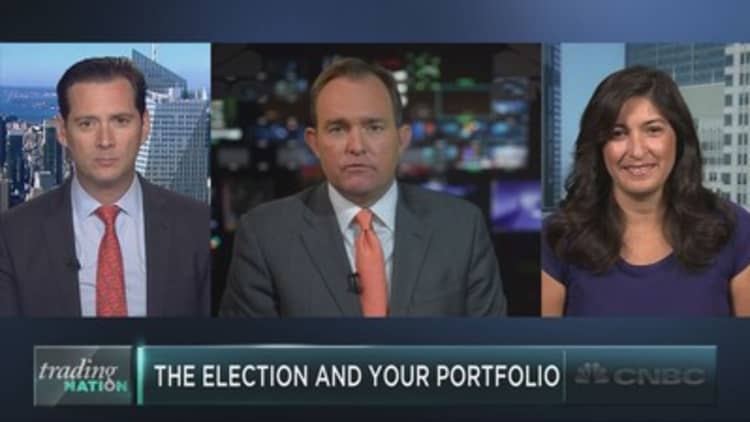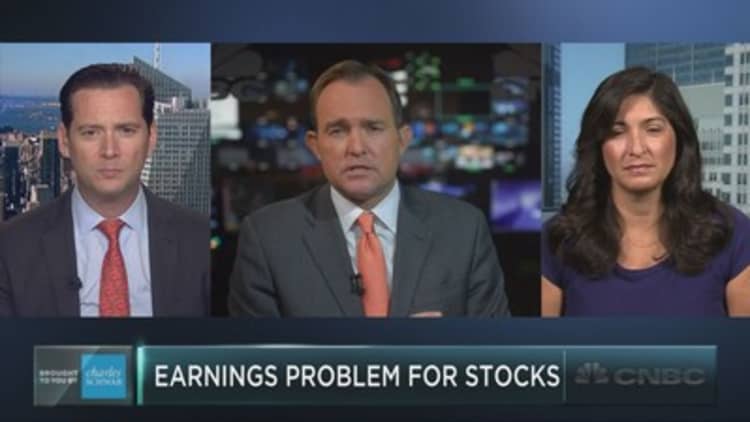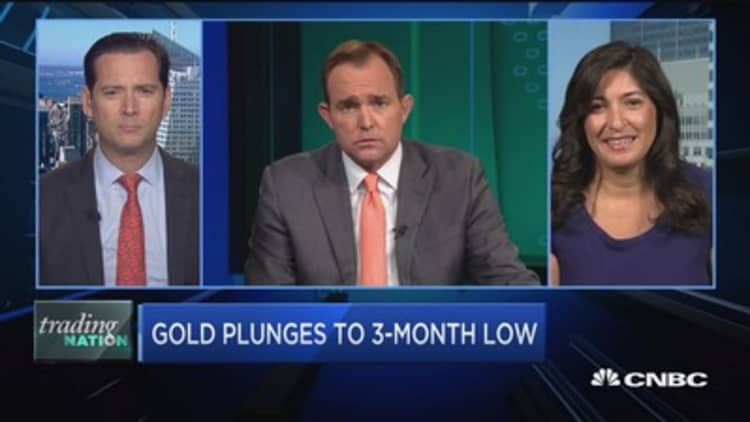


Investors ought to pay close attention to this election, because the result will have big implications for their money. That's the conclusion drawn by asset manager Gina Sanchez of Chantico Global.
Further, she thinks one candidate will be unambiguously better for stocks: Hillary Clinton.
"Just looking at their economic proposals, Clinton's proposal argues for higher revenues, for boosted tax revenues that are then cycled into fiscal spending that pushes into spaces where we really need investment, for example, infrastructure spending," Sanchez said Tuesday on CNBC's "Trading Nation."
On the other hand, Donald Trump's proposals "will probably push us into recession, if he can achieve what he wants to achieve," because of cuts to the fiscal budget and restrictive trade policies, she added.
Based on her analysis, Sanchez forecasts that annual nominal GDP growth (that is, an economic growth figure that includes gains due to inflation) will be 4.8 percent under Clinton, and 3.0 percent under Trump, contributing to faster earnings growth under the former. She also believes that the market's valuation will fall more under Trump than under Clinton.
The wind up is that she thinks will return 6.9 percent per year under Clinton, but just 2.3 percent per year under Trump. This may not sound like a massive difference, but after four compounded years, that translates into a 30.6 percent return as contrasted to a 9.5 percent return.
Sanchez believes that investors are primarily positioned for a Clinton victory; as she put it Wednesday, " the market probably needs a Clinton win more than it is prepared for a Trump win," given that the latter situation "could be extremely negative for earnings," meaning that stocks "would have to be vastly repriced."
Of course, the extensive quantity of unknowns involved here make even the most exacting analysis of dubious value. At the most basic level, it is unclear how correlated Clinton's or Trump's campaign rhetoric will be to their governing style. Beyond that, the makeup and whims of Congress will have a profound effect on what either candidate is able to do. And of course, unforeseen global events could impact each hypothetical president's administration differently.
Further, there is always the risk that even the most cold-blooded, scenario-based analysis can pick up the political views of its builder. By definition, the question of whom one thinks will put the economy on the better path is closely connected to the question of whom one would prefer to see running the country, an inherently political question.
Still, none of this absolves investors from doing the hard work of determining what each candidate would mean for their money. All indications are that Clinton and Trump would be very different presidents, meaning one would likely be far better for the markets than the other.
And in saying the "better" president would be Clinton, Sanchez appears to be aligned with the market mainstream.
Jake Weinig of Malachite Capital has previously pointed out that volatility expectations are closely correlated to Trump's perceived electoral chances. And during the first presidential debate, as betting odds of Trump becoming president dropped, S&P 500 futures saw a substantial overnight rally.






